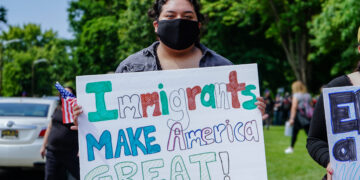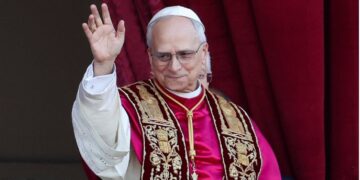On Tuesday, February 21, the Detroit City Council hosted a public hearing on the question of giving final approval to a 2015 Land Exchange Agreement (LEA) that would transfer 3.8 acres of City-owned property at Riverside Park in exchange for the $2 million balance of a $5 million payment from the Detroit International Bridge Company (DIBC). Ultimately, Council voted to approve the deal, thus ending eight years of debate and vocal opposition by some local residents. See article on page 3 for more information.
EL CENTRAL sat down with Rogelio Landin to get his take on the issues before Council and why the vote to uphold the original agreement is, as he characterizes it, “a victory for justice” by upholding the law and the will of the people of Detroit who voted for the Community Benefits Ordinance (CBO) in 2016. Detroit is the only major city in America with a CBO. Of the twelve projects that have entered into Community Benefits Agreements, Landin has served and represented the voters of Detroit on four Neighborhood Advisory Committees (NAC’s) — twice elected/twice appointed. No one in the country has more experience in crafting Community Benefits Agreements.
EL CENTRAL: What is your background in development issues like Community Benefits Ordinances and inclusionary development in Detroit?
The foundation of my commitment to community advancement began 50 years ago when I joined the League of United Latin American Citizens (LULAC), the oldest civil rights organization for Hispanics in the nation. Among our accomplishments was support for bilingual education and preserving the protected status of Hispanics in the Bradley v. Milliken II case and sharing in SER’s governance as a parent co-sponsoring organization. In its leadership capacity LULAC was able to lend a national presence in support of many Hispanic serving organizations in our city and state.
For context it is important to note that for most of my life my family has been an integral part of the Southwest Detroit community and am personally vested in all of its activities and events, e.g., Resident of Hubbard Richard, Member of Ste. Anne, etc.
What happened Tuesday was tantamount to staged theatre, the majority of the players, recruited to oppose the long overdue culmination of an agreement between DIBC and the City. The purpose being to blatantly overturn the results of an election in 2016 and extract some sort of Community Benefits Agreement to which this transfer agreement was not ever subject.
EL CENTRAL: Why do you think the majority of City Council members voted to finalize the 2015 Land Exchange Agreement despite the vocal opposition by many (but not all) local residents in the Hubbard Richard neighborhood?
To City Council’s credit, they were fair in providing time and opportunity for all stakeholders to be heard, but in the end, for the most part, found their way to vote in support of honoring the agreement in alignment with advice from Corporation Counsel. Again, all of this was unnecessary and uncalled for. The community could have benefited from the improvements eight years ago.
EL CENTRAL: In approving the agreement, Council instructed the City’s Law Department to amend the agreement to include a condition that if the DIBC should seek to build a second span in the future, the company would be required to negotiate a Community Benefits Agreement with local residents at that time. Shouldn’t that provision reassure concerned residents that the “leverage” they sought would be preserved going forward?
The most vocal opponents of the agreement refuse to accept “yes” as an answer. I’m not sure they’re wrong. If only because there remain a number of questions that must still be answered; not second-guessing Council, but:
1. Can City Law amend an agreement to include a provision that didn’t exist when the agreement was made?
2. Should DIBC decide to build a second span; will they require additional public assets? If not, then it’s a mute case and would not trigger the CBO, thereby leaving residents with nothing to say yes or no to.
EL CENTRAL: You have pointed out that the 2015 LEA preceded the Community Benefits Agreement (CBA) Ordinance that was passed by Detroit voters in 2016. Why is that significant?
The Riverside agreement would not have triggered the CBA ordinance if either CBA proposal had passed (Prop A or Prop B) because the $5M deal regarding the Riverside exchange is much lower than the $15M trigger of Prop B and much lower than the $75M trigger of Prop A which was passed. Not being an attorney, I am unaware of any legal precedent that holds anyone liable for breaking a law that didn’t exist when a contract was enacted. Nor is there any provision in the CBO to add or amend it to include past projects, nor should there be.
EL CENTRAL: Any final comments?
We all need to do our homework to truly understand the ordinances (laws) that govern our communities. This requires knowledge, not opinions. Thus, we are prepared to be proactive, not reactive.
Opinions in this article are not necessarily those of the Publisher or Editor
Do you have a contrary opinion?
Write us at info@elcentralmedia.com

















































